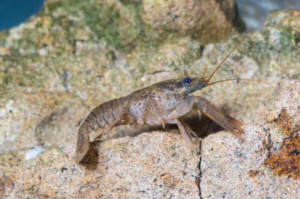From The Conversation: “Antidepressants don’t just affect human libidos. New research shows that female starlings fed food spiked with the antidepressant fluoxetine (Prozac), were less ‘attractive’ to males and so less likely to mate. This is the latest evidence highlighting the potential harm of the drugs that we are releasing into the environment.
Like many drugs we consume, antidepressants don’t get fully broken down in our bodies are excreted through our urine, from where they find their way to wastewater treatment plants. These facilities don’t have the ability to break down the drugs, which then enter our rivers and estuaries, and come into contact with and build up in our wildlife. With the numbers of young and old people with mental health problems on the rise, and rapid increases in prescriptions of antidepressants and anti-anxiety medications, these problems of water contamination are set to get worse.
We already know quite a lot about the effects of pollution of animal behaviour. We know that chemicals can alter wildlife’s aggression, ability to smell, courtship and reaction to stimuli such as light. All these behaviours are critical for animals escaping from predators, finding food and mates, or defending territories. But most of this data comes from studies in labs. And an animal’s behaviour is often very sensitive to its surroundings. So to work out exactly how drug pollution is affecting animals in the wild, my colleagues and I have turned to technology to track, measure and analyse their behaviour.”














